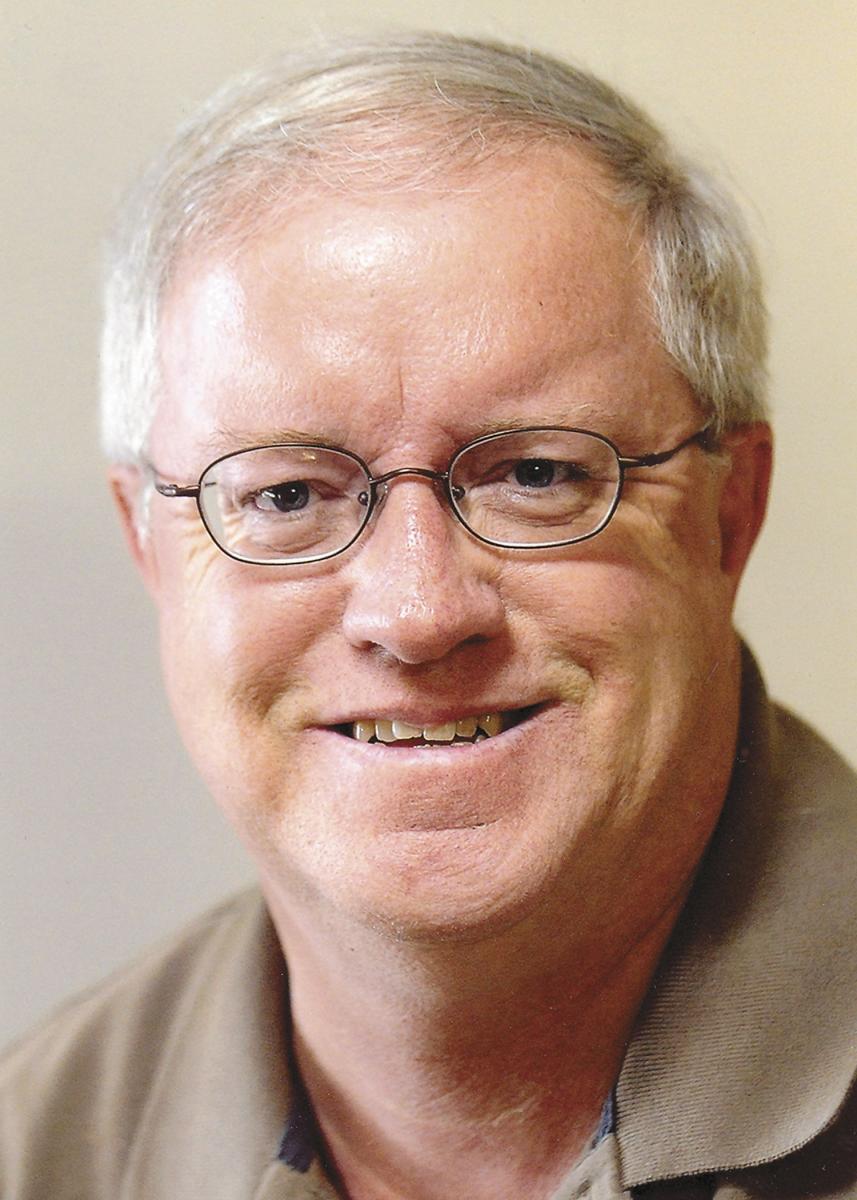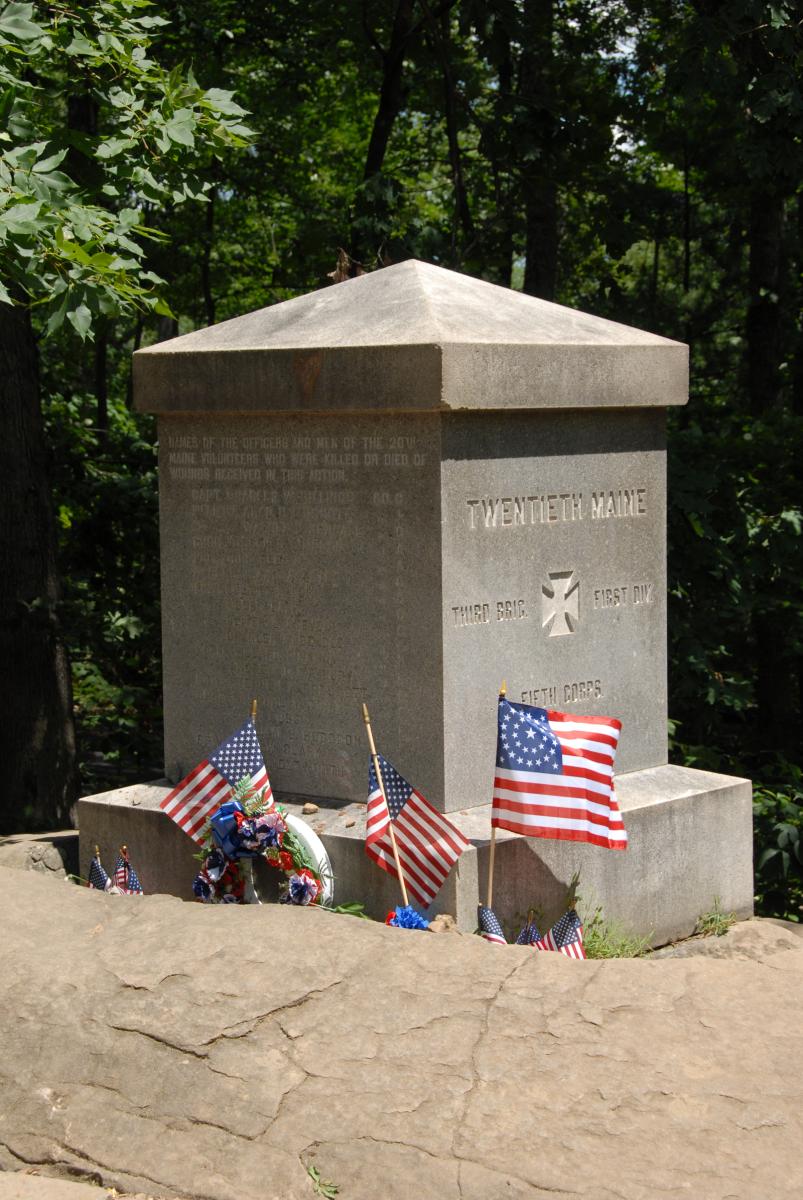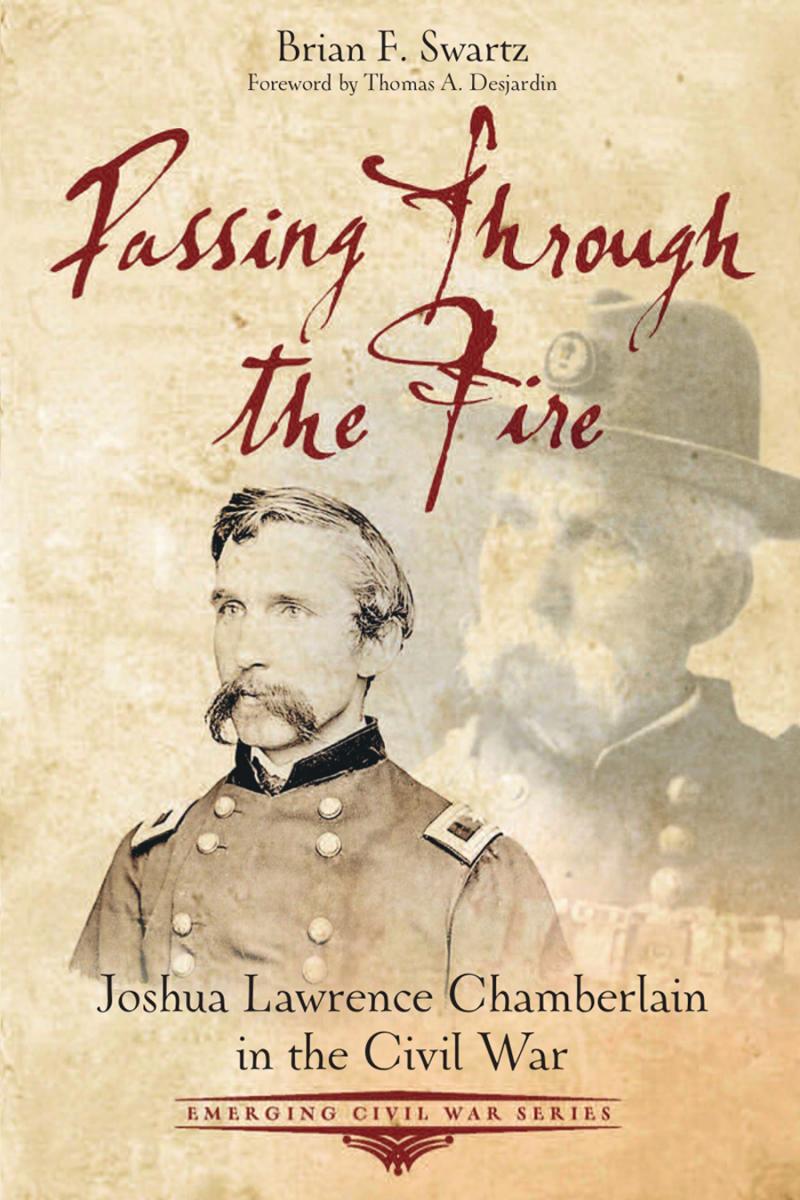- About Us
- Columns
- Letters
- Cartoons
- The Udder Limits
- Archives
- Ezy Reading Archive
- 2024 Cud Archives
- 2023 Cud Archives
- 2022 Cud Archives
- 2021 Cud Archives
- 2020 Cud Archives
- 2015-2019
- 2010-2014
- 2004-2009
 |
(Sep 2021) Ezy Reading: |
Raised in Brewer, Maine, Brian F. Swartz has worked as a newspaper reporter, editor, and photographer for 34 years and published several books. He writes the Maine at War blog post, published weekly at www.maineatwar.bangordailynews.com, and his latest book is Passing Through the Fire: Joshua Lawrence Chamberlain in the Civil War. Recently, The Cud had an opportunity to sit down with Brian and discuss his book as well as the decorated Union officer hailing from Maine that is the chief subject of that same book- Joshua Chamberlain.
Evan Kanarakis: Could you please share for us how your interest in the American Civil War first came to be? As a Maine native, you literally grew up on Chamberlain Street in Brewer, did you not? When did you first learn of Joshua Chamberlain and make the connection that you lived on a street named after him?
Brian Swartz: Our grandparents, Ray and Phyllis MacKinnon, owned an 11-acre farm on “upper” Chamberlain Street in Brewer, at the street’s highest elevation. They carved out a house lot and helped our mother, Joyce Swartz, build the house in which we grew up. To get anywhere (literally) we first traveled on Chamberlain Street.
Because I am an Air Force brat born in Texas, technically I am not a Maine native. Arriving in Brewer around age 4½, I was living here when George Hale famously predicted snow flurries, and we got 3-4 feet of snow in very late December 1962 or early January 1963. That certainly qualifies me as a “native.”
Starting in spring 1961, the Bangor Daily News printed in each Saturday’s color comics a cartoon involving a Civil War event that happened 100 years earlier. That cartoon hooked me on the Civil War, especially after our father (my parents were divorced) told me about our Civil War ancestors.
State law required that students learn Maine history in fifth, eighth, and 11th grade. I may have read about Joshua L. Chamberlain, the 20th Maine, and Little Round Top in a Bangor Daily News weekend comic in July 1963; we certainly learned about him the next year, in fifth grade.
EK: What drew you to this project? You have written a ‘Maine at War’ blog post for the Bangor Daily News for several years now. What inspired expanding on previous posts about Chamberlain into such a larger project?
BS: Chris Mackowski, editor-in-chief for Emerging Civil War, interviewed me about my Maine at War blog circa 2018. In a February 2019 email, he asked if I would consider writing for ECW’s book series a Chamberlain wartime biography. Honored by his request, I replied, “Yes.”
Although I started the MAW blog in March 2012, I had written surprisingly little about Chamberlain. In 2019 Maine Origins Publications of Brewer released my first Civil War book, titled Maine at War, Volume 1: Bladensburg to Sharpsburg.
Only one chapter refers to Chamberlain and also contain his photo.
EK: Could you please share a little of your process in researching and writing the book? What challenges did you encounter in finding fresh information about Chamberlain?
BS: Research involved finding Chamberlain’s letters, wartime reports, and book-published memoirs. I had some books, bought others, and dug into the footnotes to find additional material. The challenge lay in pulling the well-known and obscure together coherently.
On-the-ground research took me to explore the terrain around Richmond and Petersburg in Virginia. I had previously explored such JLC-affiliated places as Little Round Top at Gettysburg, Maryes Heights at Fredericksburg, and Appomattox Court House.
I am deeply indebted to the Maine State Archives; Special Collections, Fogler Library, University of Maine; and the Brunswick-based Pejepscot Historical Center for letting me access their extensive Joshua Chamberlain files.
EK: What makes Joshua Chamberlain such an important figure not just in the Civil War?
BS: First, his transition from successful soldier to successful civilian. He showed that even a man shot to pieces could do this.
Second, with his memoirs Chamberlain connects us viscerally with the Civil War, with the people, their emotions, their personalities, sometimes their fates. He honored his comrades in his voluminous writings and especially recognized his comrades’ sacrifices.
EK: What is that that you think made Chamberlain such an important leader? How does he stand apart from other military leaders of his time?
BS: To me, Joshua L. Chamberlain epitomizes the classic American citizen-soldier, the untrained civilian who displays innate ability and the staying power to serve the United States so well militarily. He was among hundreds of thousands of Americans, north and south, who donned their uniforms and served so well during the Civil War.
Having “met” so many other colonels and generals while researching the Civil War, I don’t see where Chamberlain stands on a taller pedestal. He stands with the best combat-infantry leaders of his time, and that’s saying a lot. Chamberlain looked after his men — he particularly handled the 2nd Maine mutineers so well in May 1863 — and he led from the front, sharing his soldiers’ exposure to hostile fire.
Michael Shaara’s Killer Angels and Ken Burns’ Civil War documentary propelled Chamberlain to 20th-century (and probably everlasting) fame. He’s the best-known Civil War colonel in all the United States.
EK: What do you feel people who may only have a passing knowledge of Chamberlain need to know about him? What is something perhaps that they may be surprised to learn of the man?
BS: That he was a man, not a demigod. The war damaged his marriage, almost killed him, and left him restless, perhaps seeking to relive the war emotionally for the rest of his life.
Perhaps my greatest surprises while researching Joshua Chamberlain were realizing his ambition to rise to brigadier general — he badly wanted that one star — and also his determination to fight until the Union won. Both factored into his decision to rejoin the army in late winter 1865.
EK: What about Chamberlain in the context of Maine’s history? After the war he served as Governor of Maine and President of Bowdoin College, correct?
BS: Correct. Maine Republicans nominated Joshua Chamberlain for governor in 1866, and he easily won election. After serving three more consecutive one-year terms, he returned to Brunswick and soon became Bowdoin’s president.
Perhaps his greatest role in Maine history occurred in January 1880. Political shenanigans had resulted in no clear winner during the autumn 1879 gubernatorial election. Armed partisans occupied the Maine State House as a rump legislature met in January 1880 and as Maine Supreme Court jurists relocated to Bangor to get out of harm’s way.
The outgoing governor summoned Chamberlain, as Maine’s militia commander, to August to deal with the situation. Backed by local police, he skillfully avoided choosing sides and gradually cleared the angry ready-to-shoot mob from the State House.
The Maine Supreme Court ruled on the 1879 election’s constitutionality, and the new governor took over. His duty done, Chamberlain immediately exited stage right for Brunswick.
EK: What do you consider to be Chamberlain’s true legacy as we look back on his contributions in both the Civil War and then, later, to his home state?
BS: His true legacy lies in our ability to find such warriors as him. Like countless other men, Chamberlain stepped into uniform, did his duty, and resumed his civilian life, all at great personal cost. Where did the United States and Maine find warriors like him them? And where do we now?
EK: What’s next for you as a writer and historian? Any new projects on the horizon you’d like to share about?
BS: I am currently finishing the writing for Maine at War, Volume 2, which covers Mainers’ involvement in the Civil War from late autumn 1862 to (hopefully) December 31, 1863.
Passing Through the Fire: Joshua Lawrence Chamberlain in the Civil War is available for purchase at Amazon.
